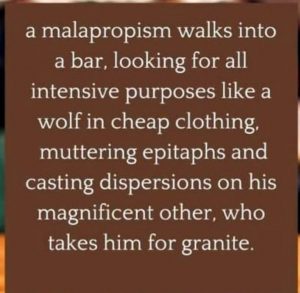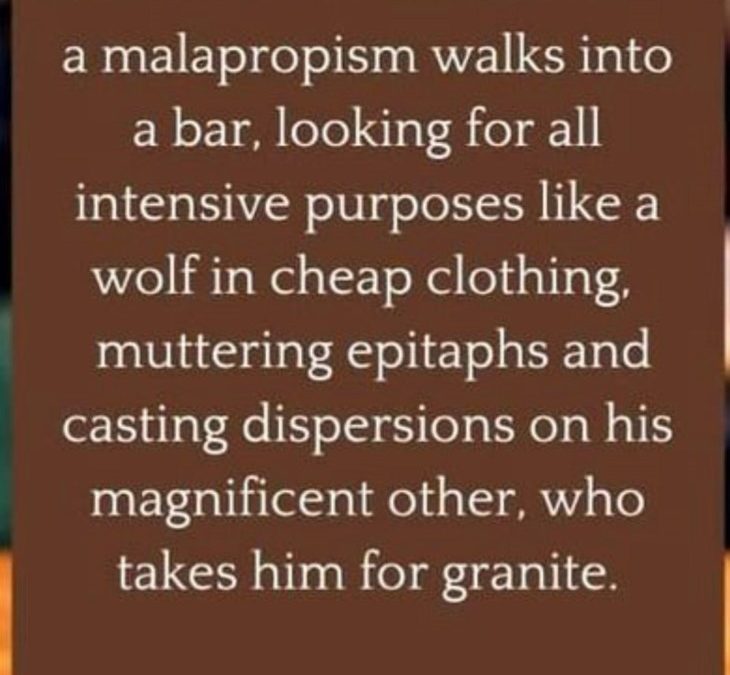Many of us have our pet peeves – minor annoyances that particularly irritate us, more so than would be normally expected.
Well, one of my pet peeves is messing up an expression. Sometimes referred to as an “eggcorn,” the more technical word for this error is “malapropism,” defined as “the mistaken use of an incorrect word in place of a word with a similar sound, resulting in a nonsensical, sometimes humorous utterance.”

Can you find the “eggcorns” in the illustration? (See the end of the article for the solution.) One malapropism I really love is “decapitated coffee”!
Here’s a very interesting video about language “pet peeves.” I just love this guy – dialect coach, Eric Singer. In this video, he points out a long list of confusions and false beliefs related to expressions, grammar and voice. For example, the expression “for all intensive purposes” (vs “for all intents and purposes”,) or “a new leash on life” (vs “a new lease on life,”) – common errors and easy to confuse, especially with the way English reduces and links sounds. And many of these “errors” are now the correct ways to speak.
Very entertaining and informative. Do you have any of these confusions?
And if you enjoy different accents, here’s another interesting Eric Singer video showing a variety of American accents, how they differ and where the accent lines are drawn geographically.
Although I am certainly not a dialect coach, I do teach the local pronunciation so this is my area and I love it. I also think it is useful to help accent students begin to differentiate between the slight variations in accent, a process which helps us to develop our listening skills.
What do you think – interesting, neutral or boring?
——————————
Answers to the incorrect malapropisms in the graphic:
- Intensive purposes – intents and purposes
- Wolf in cheap clothing – wolf in sheep’s clothing
- Muttering epitaphs – muttering epithets
- Casting dispersions – casting aspersions
- Magnificent other – significant other
- Take someone for granite – take someone for granted

